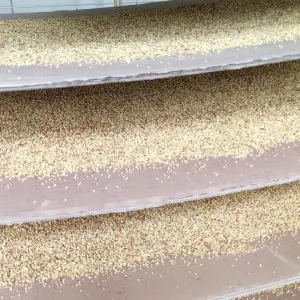Oktoba . 08, 2024 21:54 Back to list
Pollination Enhances Apple Products with Surprising Advantages for Consumers and Farmers
The Unexpected Benefits of Pollination in Apple Production
Pollination is a crucial process in the agricultural sector, particularly for fruit-bearing crops like apples. While the primary purpose of pollination is to facilitate the production of seeds and fruit, recent studies have revealed that its benefits extend far beyond mere yield increases. The intricate relationship between pollinators, particularly bees, and apple trees brings forth unexpected advantages that can enhance the quality of apple products and promote ecological balance.
First and foremost, effective pollination directly influences the quality of apples. Research indicates that apples pollinated by a diverse range of bee species tend to be larger, sweeter, and more visually appealing. This is largely due to the increased genetic diversity resulting from cross-pollination, which not only boosts the fruit size but also enriches its flavor profile. Consequently, apple producers benefit from premium products that can command higher prices in the marketplace. Consumers, in turn, enjoy a superior product that meets their taste and aesthetic expectations.
Moreover, the role of pollination extends to the health benefits of apple products. Apples are renowned for their nutritional value, containing essential vitamins, minerals, and antioxidants. When pollination is optimized, it can enhance the phytochemical composition of apples, leading to higher antioxidant levels. This not only improves the health benefits associated with apple consumption but also aligns with the growing consumer trend toward health-conscious food choices.
pollination can bring unexpected benefits to apples products

Beyond immediate agricultural benefits, pollination plays a vital role in maintaining ecological balance. Healthy apple orchards support a diverse ecosystem, providing habitats for a multitude of species, from pollinators to birds and other wildlife. This biodiversity is essential for sustainable agricultural practices and can help mitigate the impact of pests and diseases, reducing the need for chemical inputs. By fostering a rich ecological environment, apple producers can cultivate resilience against changing climate conditions and market demands.
Furthermore, the economic advantages of pollination cannot be overlooked. An increase in apple yield and quality translates to more significant profits for farmers, which can enhance rural economies and promote sustainable farming practices. Communities that rely on apple production can experience revitalization through increased job opportunities and tourism, as orchards often attract visitors seeking farm-to-table experiences.
In conclusion, the role of pollination in apple production offers a plethora of unexpected benefits, from enhanced fruit quality to ecological sustainability and economic vitality. As awareness grows about the importance of pollinators, it becomes imperative to protect and promote these essential organisms, ensuring that the apple industry—and the numerous stakeholders it affects—continues to thrive.
-
Eco Fruit Paper Bags for Peak Freshness | Durability Focused
NewsJul.31,2025
-
Pollen Peach Tree for Pure Pollination and High-Quality Peach Pollen
NewsJul.30,2025
-
Premium Cherry Pollen for Pure Pollination & Different Types
NewsJul.30,2025
-
Artificial Pollination Solutions for Various Plant Pollen Types
NewsJul.29,2025
-
Artificial Pollination Solutions for All Plant Pollen Types
NewsJul.29,2025
-
Premium Plant Pollen for Pure Pollination & Pollen Block Solutions
NewsJul.29,2025